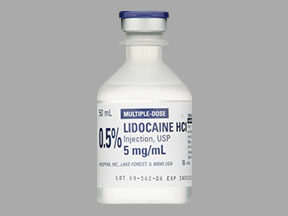
Xylocaine Coupons & Savings Card – Discount Prices from $1.01
Brand for: Lidocaine
My prescription
Edit
50ML of 0.5%, Lidocaine (1 Vial)
Select pharmacy

CVS
$22.96
COUPON PRICE
Walmart
$1.01
COUPON PRICE
Albertsons
$7.49
COUPON PRICE
Walgreens
$7.49
COUPON PRICEXylocaine savings card
Show this card to your pharmacist
Walmart
$1.01
BIN
ID
PCN
GRP
019876
LHB5C8850F
CHIPPO
LHX
Powered by
Related local anesthetics prescriptions
More prescriptions for postherpetic neuralgia
Related local anesthetics prescriptions
More prescriptions for postherpetic neuralgia
Xylocaine (Lidocaine) dosage forms
Dosage Quantity Price from Per unit 10ML 1 Vial $3.35 $3.35 10ML 2 Vials $4.21 $2.10 10ML 3 Vials $5.06 $1.69 10ML of 2% 1 Vial $3.12 $3.12 10ML of 2% 2 Vials $3.73 $1.86 10ML of 2% 3 Vials $4.35 $1.45 50ML of 0.5% 1 Vial $1.01 $1.01 50ML of 0.5% 2 Vials $4.11 $2.06 50ML of 0.5% 3 Vials $8.65 $2.88
| Dosage | Quantity | Price from | Per unit |
|---|---|---|---|
| 10ML | 1 Vial | $3.35 | $3.35 |
| 10ML | 2 Vials | $4.21 | $2.10 |
| 10ML | 3 Vials | $5.06 | $1.69 |
| 10ML of 2% | 1 Vial | $3.12 | $3.12 |
| 10ML of 2% | 2 Vials | $3.73 | $1.86 |
| 10ML of 2% | 3 Vials | $4.35 | $1.45 |
| 50ML of 0.5% | 1 Vial | $1.01 | $1.01 |
| 50ML of 0.5% | 2 Vials | $4.11 | $2.06 |
| 50ML of 0.5% | 3 Vials | $8.65 | $2.88 |
What is a Xylocaine used for?
Xylocaine is used as a local anesthetic to numb specific areas of the body during medical procedures. It is also used to relieve pain and discomfort from conditions such as sore throat, mouth ulcers, or minor skin irritations.
What is the difference between lidocaine and Xylocaine?
Lidocaine and Xylocaine refer to the same medication. Lidocaine is the generic name, while Xylocaine is a brand name for the same drug. Both are used as local anesthetics to numb tissue in a specific area.
Is Xylocaine the same as novocaine?
Xylocaine and Novocaine are not the same, although both are local anesthetics. Xylocaine is the brand name for lidocaine, while Novocaine is the brand name for procaine. They are used for similar purposes but have different chemical compositions and properties.
Is Xylocaine a numbing cream?
Yes, Xylocaine is a brand name for a topical anesthetic that contains lidocaine, which is used to numb the skin or mucous membranes. It is available in various forms, including creams, and is commonly used to relieve pain or discomfort from minor skin irritations, insect bites, or minor burns.
Where should you not apply lidocaine?
Lidocaine should not be applied to broken or inflamed skin, open wounds, or areas with severe burns. It should also be avoided in the eyes, inside the nose, mouth, or ears, and on large areas of the body unless directed by a healthcare professional.
